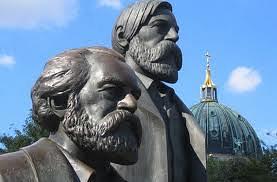Financial Crisis: Global Economy undermines Human Quality-of-Living
The worldwide financial crisis is not a question of too little money. The problem is that too much money is concentrated in the hands a very small number of plutocrats. Some Zimbabwe’s Robert Mugabe have achieved immense wealth by bleeding the population. Others like the Walton family (heirs to the Walmart fortune) in inherited enough money to make the six of them as wealthy as the bottom 20% of United States citizens. And they use their considerable influence to ensure that their wealth increases because their taxes do not.
How much is enough? Ben Jonson’s notorious character, Volpone, said “There is never enough”. Modern day capitalists certainly seem to agree. Modern day capitalists do not go into business to make a living, they intend to make money – lots and lots of it. As Volpone’s contemporary, Machiavelli’s Prince opined, “The end justifies the means.” As a result, the rich get richer and the poor get poorer, exploited and squeezed and expected to work harder for less money.
Horace Carby-Samuels, in his book Quality-of-Living and Human Development, sums up the situation: “The capitalist system currently functions as an incentive for the destruction of humanity.” And destruction of the environment. If there is profit to be made by extracting minerals or other resources from the earth, it is done for short-term gain with no thought about future generations. Slash-and-burn, clear-cut logging, mountain-top removal, fracking. These are all highly destructive practices which may produce significant profit at the time, but leave the areas devastated and unlikely to recover. Success for an individual or a company is measured in terms of financial achievement regardless of the cost to workers, investors or the man in the street.
It would take only a very small reduction in the profit margin of large corporations to greatly enhance the quality of life of their workers. And a modest reduction in the compensation paid to top executives. In the 20s, the top 1% controlled 70% of the wealth in America. Look what happened in the 30s. Today, the top 1% has an average income of $1.6 million, while the bottom 20% earns an average $16,000. Is this disparity justifiable? Is it sustainable?
Carby-Samuels, and many others would say no to both questions. In his book, Carby-Samuels presents a model for a people-centred economic development, in which the economy is re-oriented away from profit at all costs towards quality-of-survival outcomes. That is survival for exploited workers, and for the planet.
Comments
There are 0 comments on this post















